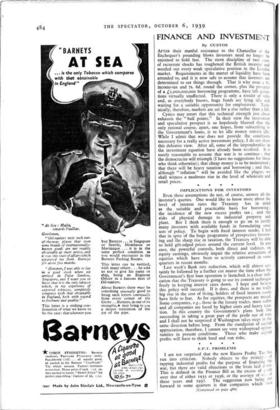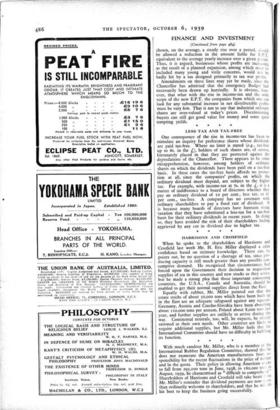E.P.T. PROBLEMS
I am not surprised that the new Excess Profits Tw. has run into criticism. Nobody objects to the orincip.,' of tapping industrial profits for the purpose of financing the war, but there are valid objections to the basis laid down. This is defined in the Finance Bill as the excess of l over that of either 1935 or 1936, or the averne of of these years and 1937. The suggestion now being put forward in some quarters is that companies which :lave (Continued on page 486)
FINANCE AND INVESTMENT
(Continued from page 484) shown, on the average, a steady rise over a period, should be allowed a reduction in the amount liable for E.P.T. equivalent to the average yearly increase over a given period. Thus, it is argued, businesses whose profits are increasing as the result of a planned expansion, among which must be included many young and virile concerns, would not be badly hit by a tax designed primarily to tax war profits. Amendments on these lines may yet be made, since the Chancellor has admitted that the emergency Budget had necessarily been drawn up hurriedly. It is obvious, how- ever, that what with the rise in income-tax and the wide scope of the new E.P.T. the companies from which one can look for any substantial increase in net distributable profits must be very few. That is not to say that industrial ordinary shares are over-valued at today's prices. Discriminating buyers can still get good value for money and some quite• tempting yields.



































 Previous page
Previous page